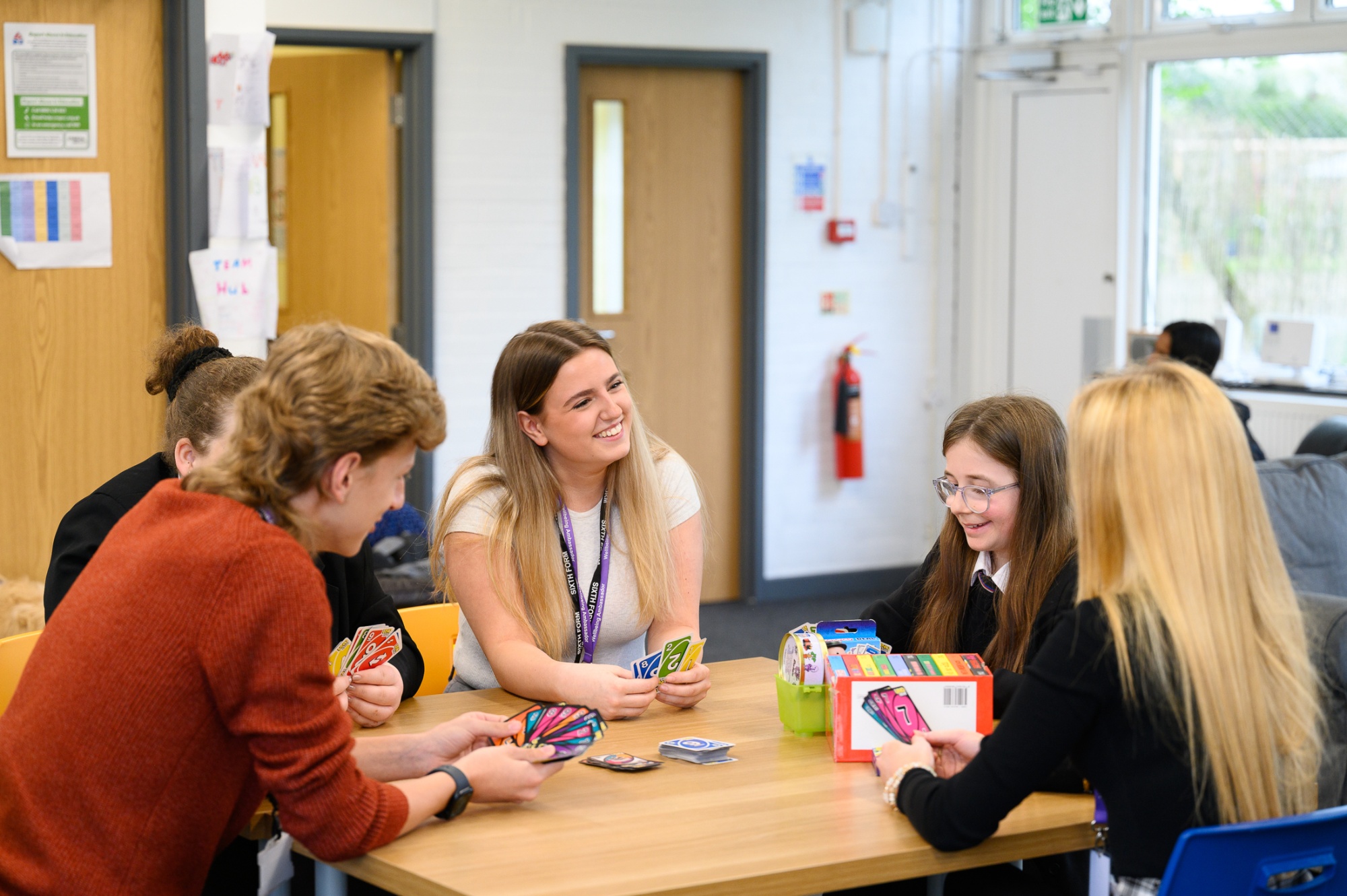Ethics and Philosophy
Examination Board | AQA
Specification Code | Religious Studies 7062
Subject Content
Below is an outline of the entire two-year A-Level. Please see the purple text for which topics we teach in Year 12.
Year 12
Component one - Philosophy of Religion and Ethics
Section A: Philosophy of religion
- Arguments for the existence of God
- Evil and suffering
- Religious experience
- Religious language
- Miracles
- Self and life after death
Section B: Ethics and religion
- Ethical theories
- Issues of human life and death
- Issues of animal life and death
- Introduction to meta-ethics
- Free will and moral responsibility
- Conscience
- Bentham and Kant
Year 13
Component Two - Study of religion and dialogues
Section A: Study of religion – We study Christianity and the following topics are covered:
- Sources of wisdom and authority
- God/gods/ultimate reality
- Self, death and the afterlife
- Good conduct and key moral principles
- Expression of religious identity
- Religion, gender and sexuality
- Religion and science
- Religion and secularisation
Section B: The dialogue between philosophy of religion and religion.
- How religion is influenced by, and has an influence on philosophy of religion in relation to the issues studied.
- Section C: The dialogue between ethical studies and religion.
- How religion is influenced by, and has an influence on ethical studies in relation to the issues studied.
Assessment Details
Paper one - Written exam: 3 hours
- 100 marks
- 50% of A-Level
Paper two - Written exam: 3 hours
- 100 marks
- 50% of A-Level
What can I do to support my child at home?
A-Level Religious Studies builds on the critical thinking skills that were developed during GSCEs. Pupils are required to dig deeper into ultimate questions such as ‘what happens after we die?’, ‘is there a higher power?’, and ‘what do we mean by good’.
They do this through engaging with philosophical thinkers from the early Greeks through to 21st Century figures. This is then applied to moral problems, such as ‘how should we use animals?’ or ‘should we go to war?’. They also engage in a rigorous study of Christianity and its place in the modern world. To this end, pupils should have an awareness of current affairs and moral issues. You can help them to do this by:
- Encouraging them to engage with news stories that are relevant to the subject
- Discussing key ethical dilemmas that are facing the world today.
- Visiting places or worship and sites of religious and historical relevance
- Assisting your child with remembering keywords and concepts (these are available in electronic form from the department)
- Assisting your child in memorising key scripture from sources of authority that they can refer to in their exam
Websites
- Faculty of Divinity and the Faculty of Education Religious Education Faculty of Divinity, University of Cambridge - YouTube
- Crash course - covers various aspects of the course CrashCourse - YouTube
- The Stanford Philosophy encyclopaedia Philosophy of Religion
- The Panpsycast Philosophy Podcast The Panpsycast Philosophy Podcast
- Massolit MASSOLIT – Philosophy & Religious Studies
- Peped https://peped.org/philosophicalinvestigations/
Books
- AQA A-level Religious Studies Year 1 - ISBN-13 978-1471873959
- AQA A-level Religious Studies Year 2 - ISBN-13978-1471874000
Teaching Staff Contact Details
Head of Ethics and Philosophy
Miss Lay - mlay@cottesloe.bucks.sch.uk
Teacher of Ethics and Philosophy
Mrs Redman - eredman@cottesloe.bucks.sch.uk
Teacher of Ethics and Philosophy
Miss Gray - egray@cottesloe.bucks.sch.uk
Ethics and Philosophy Curriculum Intent and Ethos
Intent
When studying Ethics and Philosophy at The Cottesloe School, students are encouraged to embark upon a quest for answers to ultimate questions, such as ‘What happens when we die?’ and ‘Does God exist?’. The main focus of Ethics and Philosophy is to develop the critical thinking skills in our students and facilitate their exploration of not only religion and religious ways of life, but also key moral and ethical dilemmas that may face the world within the 21st century. Through a wide and varied curriculum, students are encouraged to reflect on their opinions and beliefs, as well as challenging the views of others. Students in the Ethics and Philosophy department will study religious teachings and practices, as well as forms of expression and belief. We feel it is important that students gain understanding of the impact that religion may have on individuals, families, communities and cultures. They are required to evaluate issues of truth, beliefs, faith and ethics and communicate these through a variety of methods.
Ethos
Using the 6Cs and the Healthy Relationship wheel adopted by the school, we promote an ethos of inclusive religious, social, moral and cultural learning. We aim to foster an environment where young people are able to shape their own beliefs and engage critically with the beliefs of others in a supportive and nurturing environment. Students develop culture and character through their engagement in Ethics and Philosophy at The Cottesloe School, equipping themselves with skills they need to be considerate and conscientious members of the local and global community, whilst also developing their own strong sense of self, as they continue to grow.
Careers in Ethics and Philosophy
The skills you gain in Ethics and Philosophy are valuable in many fields. Here are just a few examples:
- Law: Lawyers analyse complex situations, weigh evidence, and argue persuasively - all skills honed in Ethics and Philosophy.
- Business: Businesses need ethical leaders who can make sound decisions and navigate complex situations. A good understanding of other cultures and beliefs will also help them to understand the needs of clients and communities.
- Education: Teachers need strong communication and critical thinking skills to inspire young minds.
- Social Work: Social workers deal with sensitive situations and ethical dilemmas on a daily basis. Your ethics background will prepare you well.
- Journalism: Journalists need to research, analyse, and present information objectively. Your training in ethics will be invaluable.
- Medicine: Doctors face ethical dilemmas all the time. A strong foundation in ethics will guide your decisions.
- Media: The media shapes public opinion. A strong understanding of ethics allows you to consider how your stories might impact different cultures and belief systems. This fosters respectful and responsible journalism and can guide creative writing for scripts.
This is just the starting point! The critical thinking and communication skills you develop will be an asset in any career path you choose.






